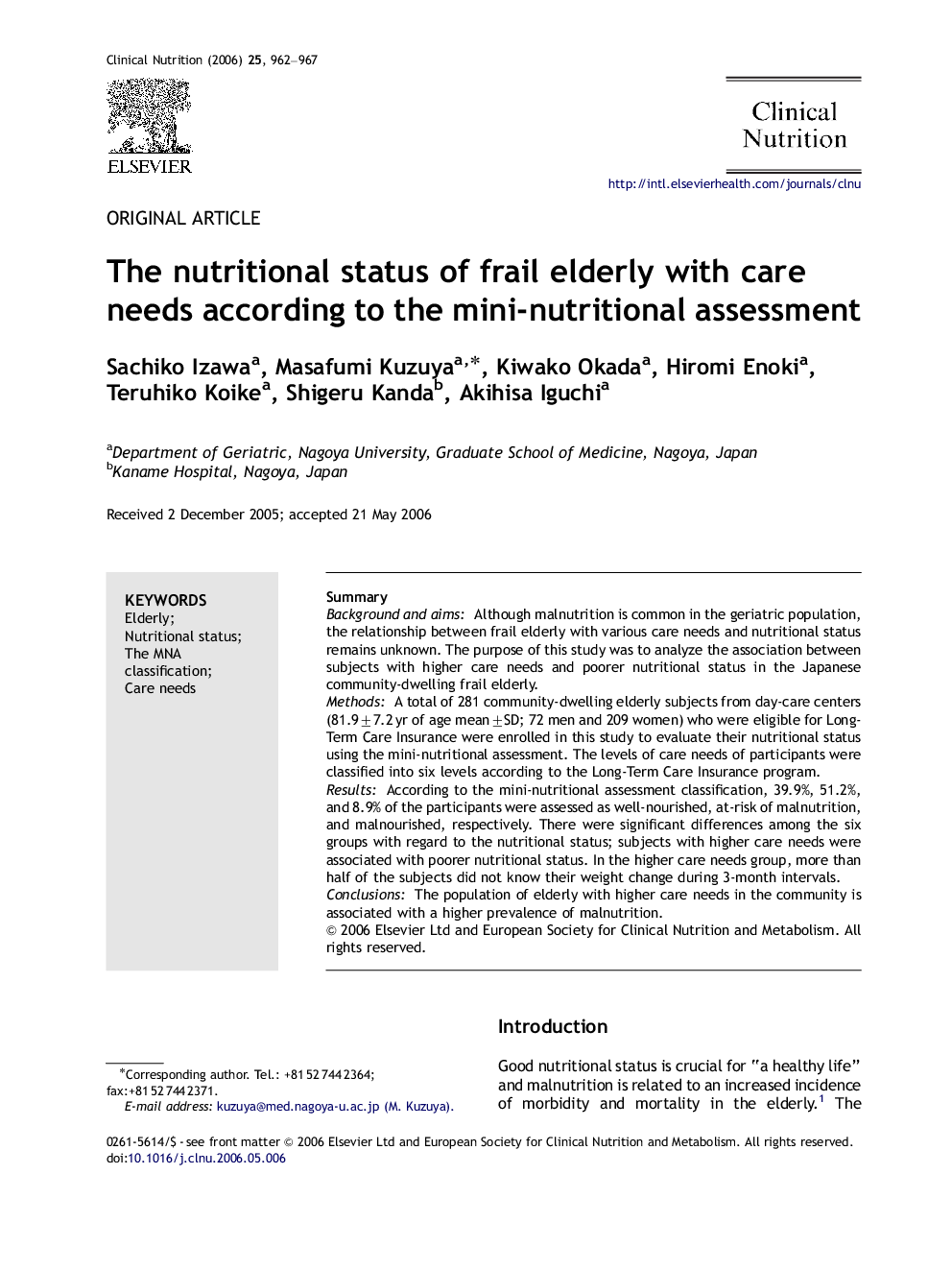| Article ID | Journal | Published Year | Pages | File Type |
|---|---|---|---|---|
| 2688676 | Clinical Nutrition | 2006 | 6 Pages |
SummaryBackground and aimsAlthough malnutrition is common in the geriatric population, the relationship between frail elderly with various care needs and nutritional status remains unknown. The purpose of this study was to analyze the association between subjects with higher care needs and poorer nutritional status in the Japanese community-dwelling frail elderly.MethodsA total of 281 community-dwelling elderly subjects from day-care centers (81.9±7.2 yr of age mean±SD; 72 men and 209 women) who were eligible for Long-Term Care Insurance were enrolled in this study to evaluate their nutritional status using the mini-nutritional assessment. The levels of care needs of participants were classified into six levels according to the Long-Term Care Insurance program.ResultsAccording to the mini-nutritional assessment classification, 39.9%, 51.2%, and 8.9% of the participants were assessed as well-nourished, at-risk of malnutrition, and malnourished, respectively. There were significant differences among the six groups with regard to the nutritional status; subjects with higher care needs were associated with poorer nutritional status. In the higher care needs group, more than half of the subjects did not know their weight change during 3-month intervals.ConclusionsThe population of elderly with higher care needs in the community is associated with a higher prevalence of malnutrition.
